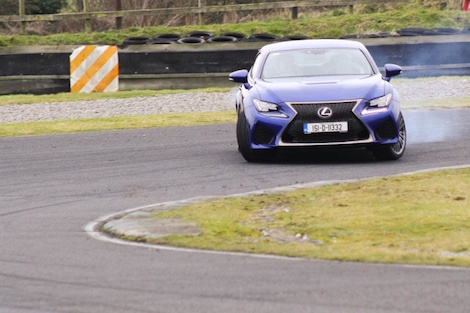While the readership of CompleteCar.ie (and all other mainstream motoring publications) is partly made up of petrolheads and serious car enthusiasts, the vast majority of our readers are 'normal' car buyers more interested in price, economy, running costs, safety, space, image and technology. Why then do we (and most other professional motoring journalists) focus so much on how a car drives?
In our car reviews we often detail the nuances of ride and handling, talk about steering 'feel', feedback from the chassis and such like. When only a small percentage of readers care about such things, why do we persist? There are several reasons, some less convincing than others, but here's my attempt at explaining it to our readers - all our readers - so that they may better understand.
First up, most journalists that have made a career of writing about cars and motoring for as long as I have (since about 1999) started out as real enthusiasts. It was inevitable for me, growing up with a mechanic and car nut for a dad. I worked alongside him in his garage from knee high and even at university I went back to do the same.
I reckon I drove my first car at about the age of eight (a pale yellow Fiat 127, manoeuvred around the garage forecourt) and I spent the next decade pestering my dad to allow me precious seconds behind the wheel of anything that moved. He must have been relieved when I headed off to London to study before I could legally take cars on the public road...
During all that time working on and begging to drive cars, I developed a love of car magazines. I remember buying my first, a copy of Performance Car with a red Pantera on the cover, in 1987 at the tender age of 11 and I read it from cover to cover. For a long time after that I did the same with every copy of Autocar (or Autocar & Motor as it was for a while), CAR and latterly Evo I could get my hands on. It's safe to say that the writing of the road testers in all of these publications had a huge influence on me. I won't bore you (further) with my journey from there through engineering at university to working as a professional motoring journalist today, but hopefully you get the picture: I live, breath, sleep and work cars. As virtually all professional motoring writers do. Hence we want to write about cars in a way that excites and interests us. This is, admittedly, more than a little self-indulgent, but bear with me, as the reader benefits too.
Sixteen years or so after I took delivery of my first test car, I have reviewed literally thousands of cars and I now drive in excess of 200 new cars a year, which, frankly, makes me an expert in such things. Yes, that sounds boastful, but it's why readers turn to experienced journalists and not just friends that like cars when looking for an expert opinion. Anyway, this level of experience means I know quite quickly how a car drives in comparison to its predecessor and all of its current rivals.
Which brings me back to the starting paragraph - does anyone care? Perhaps not directly, but think back to the oldest car you've experienced. Would you describe it as a 'death trap' now? Many would. The progress in terms of safety in cars is at least in part thanks to the reviewing of journalists through the years. I like to think you can thank us for advancements made in suspension, tyre and brake technology, not to mention electronic driver aids and overall car body strength. Naturally, the engineers made it all happen, but reviews from my colleagues would have steered development as car makers constantly search for improvements and an edge over the competition. Of course, we have little proof of that link. Engineers and management and especially PR people will tell us how much our opinions matter when we are just about to critique a car, but let's face it; they have an ulterior motive to keep us buttered up.
Does a reader benefit directly from learning more about a car's handling, or, more pertinently, choosing a car that handles better than another? Or from choosing one that is said to have more steering feel, for example? Yes, yes they do, and it doesn't make sense to separate all the many facets of how a car drives. Put simply, the more a driver understands what the car underneath them is doing at a given moment, how much grip there is available at each corner and how the car will react to inputs through the steering, accelerator, brake or gear lever, the safer a driver they will be. They don't need to be taught all this and they may not be able to describe why they prefer to drive one car over another, but they undoubtedly will. A good car is one that communicates what it's doing intuitively to a driver, no matter who they are. A good motoring journalist is one that communicates information about what makes a good car to a car buyer, no matter who they are.








